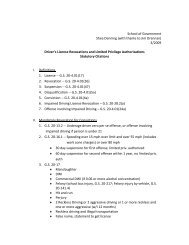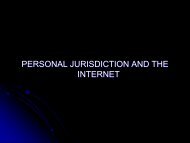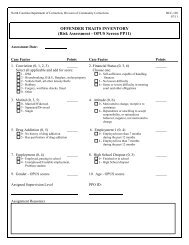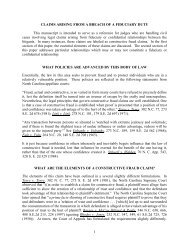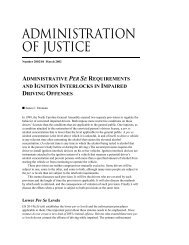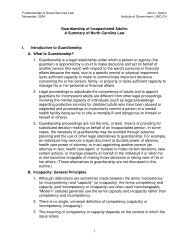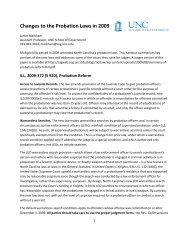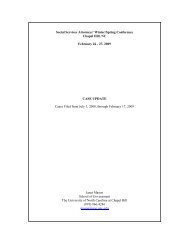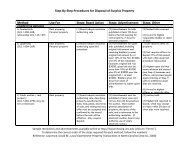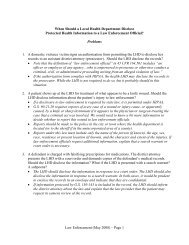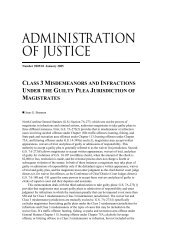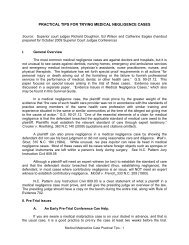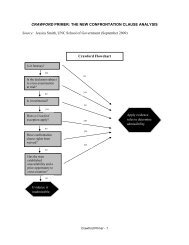Sample Forms and Colloquies
Sample Forms and Colloquies
Sample Forms and Colloquies
You also want an ePaper? Increase the reach of your titles
YUMPU automatically turns print PDFs into web optimized ePapers that Google loves.
NOTICE TO ATTORNEYS CONCERNING CLOSING ARGUMENTS<br />
Counsel are reminded of the provisions of G.S. 15A-1230 setting parameters<br />
for closing arguments, as well as the cases cited below. Jury arguments that violate<br />
these parameters will not be permitted in the trial of this case, with or without<br />
objection from opposing counsel. In the event of any doubt as to the propriety of a<br />
planned argument, counsel should address those concerns during the charge<br />
conference.<br />
In closing arguments to the jury, an attorney shall not:<br />
(1) become abusive,<br />
(2) express his personal belief as to the truth or falsity of the evidence,<br />
(3) express his personal belief as to which party should prevail, or<br />
(4) make arguments premised on matters outside the record.<br />
The trial court will monitor vigilantly the course of such arguments,<br />
intervene as warranted, entertain objections, <strong>and</strong> impose remedies pertaining to<br />
those objections. Such remedies include, but are not necessarily limited to, requiring<br />
counsel to retract portions of an argument deemed improper or issuing instructions<br />
to the jury to disregard such arguments. State v. Jones, 355 N.C. 117, ___ S,E2d ___<br />
(1998).<br />
EXAMPLES OF IMPROPER ARGUMENTS:<br />
1. Reference to notorious crimes; personally degrading remarks. A prosecutor’s<br />
reference to the “Columbine [school] shootings” <strong>and</strong> the “Oklahoma City bombing”<br />
as examples of national tragedies; degrading remarks against the defendant, saying<br />
"You got this quitter, this loser, this worthless piece of -- who's mean. . . . He's as<br />
mean as they come. He's lower than the dirt on a snake's belly…" An argument<br />
containing these remarks was improper for three reasons: (1) it referred to events<br />
<strong>and</strong> circumstances outside the record; (2) by implication, it urged jurors to compare<br />
defendant's acts with the infamous acts of others; <strong>and</strong> (3) it attempted to lead jurors<br />
away from the evidence by appealing instead to their sense of passion <strong>and</strong> prejudice.<br />
State v. Jones, 355 N.C. 117, ___ S.E.2d ___ (1998).<br />
2. Expressing an opinion that a witness is lying. “He can argue to the jury that they<br />
should not believe a witness, but he should not call him a liar.” State v. Golphin, 352<br />
N.C. 364, ___ S,E.2d ___ ( ).<br />
3. Reference to Defendant’s failure to testify. The prosecutor may comment on a<br />
defendant's failure to produce witnesses or exculpatory evidence to contradict or<br />
refute evidence presented by the State, but it is error for the prosecutor to comment<br />
directly on a defendant's right not to testify by stating, "'The defendant has not<br />
taken the st<strong>and</strong> in this case.” State v. Barden, 356 N.C. 316, ___ S.E.2d ___ (2002).



